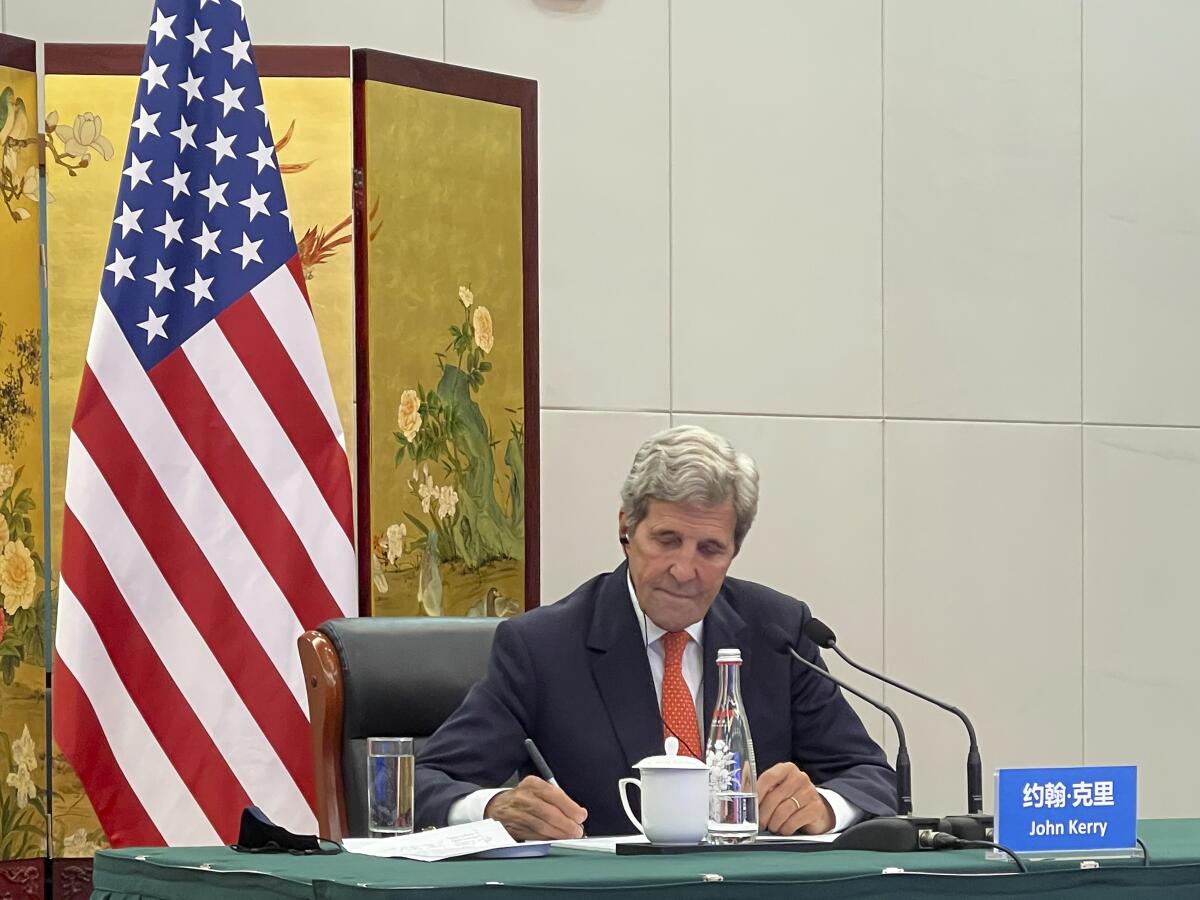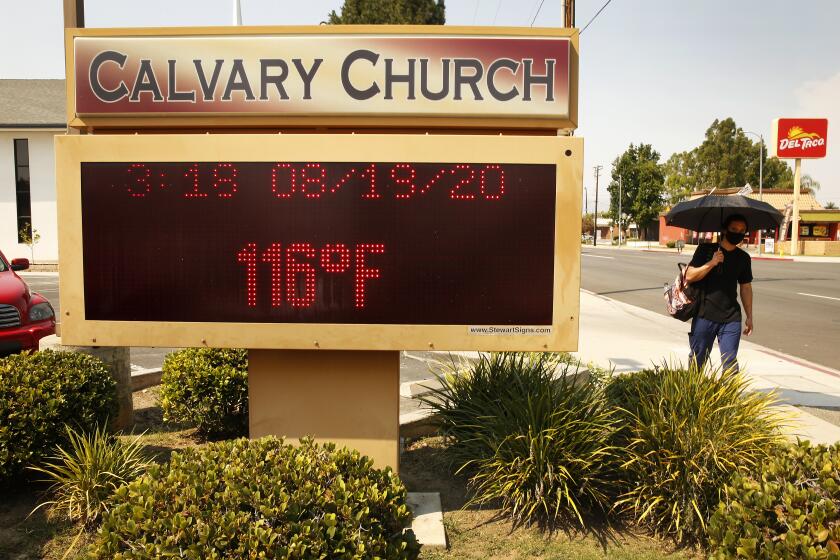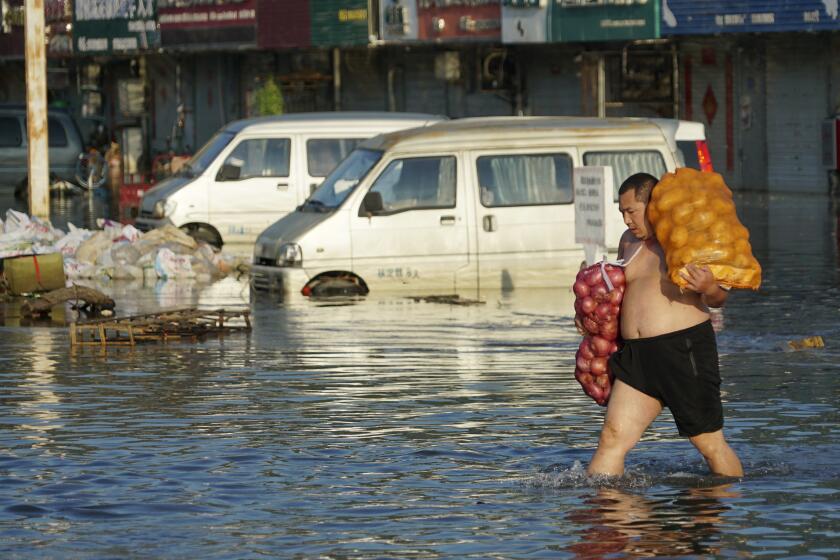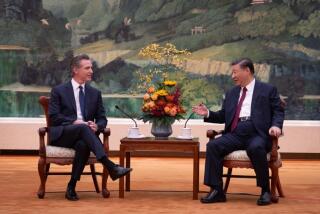China’s commitment is crucial to handling climate crisis, U.S. envoy John Kerry says

BEIJING — China needs to expand its efforts to reduce carbon emissions to help hold back the rise in global temperatures, U.S. envoy John F. Kerry said Thursday.
The State Department said Kerry told Chinese Vice Premier Han Zheng in a virtual meeting that there is “no way” for the world to solve the climate crisis without China’s “full engagement and commitment.”
China is the world’s largest carbon emitter, producing an estimated 27% of global greenhouse gases, followed by the United States.
Kerry is in the eastern Chinese port city of Tianjin for talks on stronger efforts to curb rising temperatures to no more than 2.7 degrees Fahrenheit over pre-industrial levels.
Global decarbonizing efforts will come under the spotlight at a U.N. conference to be held in Glasgow, Scotland, in late November known as COP26.
California’s climate resilience budget includes little money to prepare for extreme heat.
“Secretary Kerry emphasized the importance of the world taking serious climate actions in this critical decade and strengthening global climate ambition,” the State Department said in a statement.
China’s official Xinhua News Agency quoted Han as telling Kerry that China had made “huge efforts” in tackling climate change and had achieved “remarkable results.”
China “hopes the American side will create the appropriate circumstances for jointly tackling climate change based on the spirit of the conversations between their leaders,” Xinhua quoted Han as saying.
Kerry made a stop in Japan on Tuesday to discuss climate issues with Japanese officials before heading to China.
On Wednesday, Chinese Foreign Minister Wang Yi warned Kerry that deteriorating U.S.-China relations could undermine cooperation between the two on climate change.
Such cooperation cannot be separated from the broader relationship, Wang told Kerry by video link.
Relations between Washington and Beijing have been strained by disputes over trade, technology and human rights. However, the two sides have identified the climate crisis as an area for possible cooperation following President Biden’s decision to rejoin the the 2015 Paris climate accord.
China obtains roughly 60% of its power from coal and is opening more coal-fired power plants, while also committing to reducing its use of the fossil fuel.
The U.N. says global warming is likely in the next two decades to pass 1.5 degrees Celsius — the ambitious target of the 2015 Paris climate agreement.
Beijing has pointed to historical U.S. emissions as a reason to resist action while making advances in solar power and other renewable energy sources. The country has set a target of generating 20% of its total energy needs from renewables by 2025, becoming carbon-neutral by 2060 and reducing total emissions starting from 2030.
Biden has announced a goal of cutting up to 52% of U.S. greenhouse gas emissions by 2030 — double the target set by then-President Obama in the Paris agreement. The 2030 goal vaults the U.S. into the top tier of countries on climate ambition.
More to Read
Sign up for Essential California
The most important California stories and recommendations in your inbox every morning.
You may occasionally receive promotional content from the Los Angeles Times.












